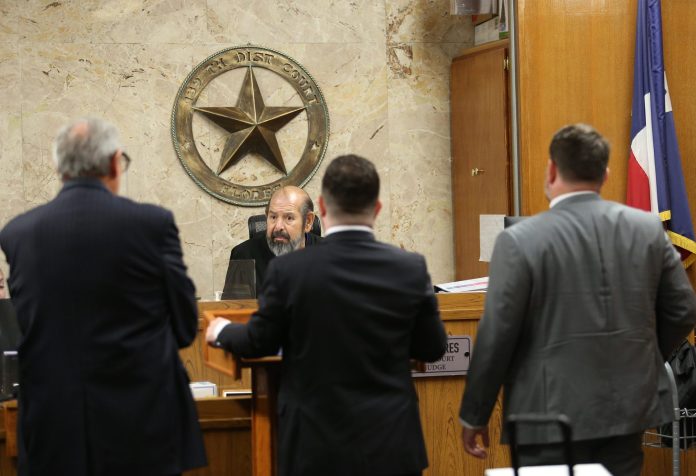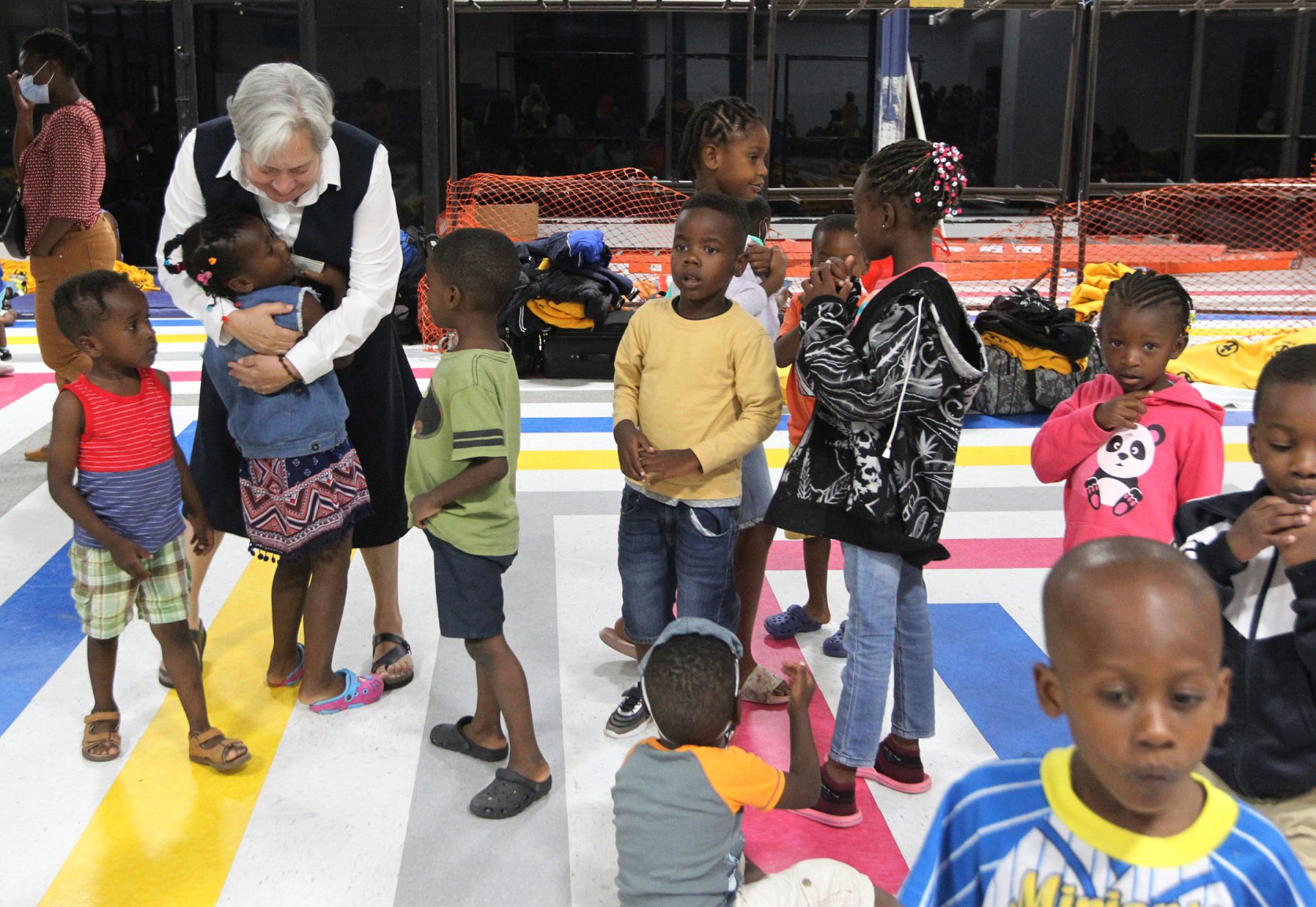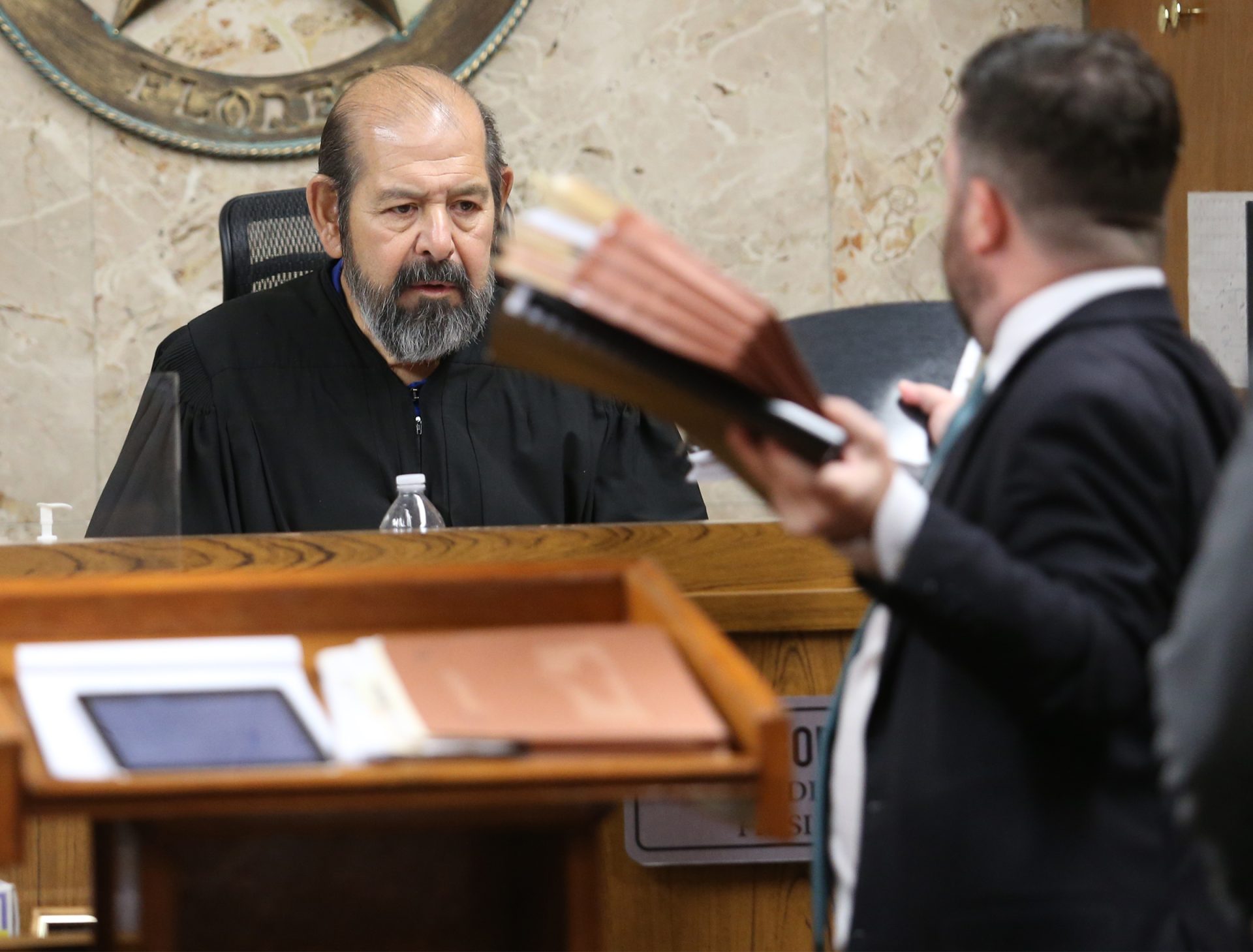
|
Only have a minute? Listen instead
Getting your Trinity Audio player ready...
|
A state district judge has knocked down an attempt by Texas Attorney General Ken Paxton to depose Catholic Charities of the Rio Grande Valley in a bid to suss out information on alleged human smuggling.
J.R. “Bobby” Flores, judge of the 139th state District Court, handed down the order denying the AG’s request shortly after noon on Wednesday, court records show.
“Upon consideration of the Petition and the Response and Objections, as well as all applicable law, the arguments of counsel, and all timely filed pleadings and evidence, the Court is of the opinion that the Petition should be DENIED,” Flores’ two-paragraph order states.
Last Wednesday, a veritable swarm of attorneys representing both the AG’s office and Catholic Charities crowded into Flores’ courtroom on the second floor of the Hidalgo County Courthouse to argue the merits of their opposing positions.
The state’s attorneys said that the AG’s office began looking into allegations that non-governmental organizations, or NGOs, have been illegally assisting migrants enter the country at the U.S.-Mexico border.
The allegations stemmed from a December 2022 directive by Texas Gov. Greg Abbott calling on the AG’s office to investigate the claims, as well as a September 2023 letter from U.S. Rep. Lance Gooden, a Republican representing East Texas, to Homeland Secretary Alejandro Mayorkas.
Gooden’s letter made similar claims, calling the unnamed NGOs “complicit” in trafficking more than 8 million migrants into the country.
Earlier this spring, attorneys with the state began reaching out to Catholic Charities on a fact-finding mission.
On March 25, the attorney general’s office sent Catholic Charities a letter demanding that it designate a representative to testify before state attorneys in Austin at the beginning of April.
The AG’s office cited its authorities to investigate businesses and nonprofits under the Texas Business Organizations Code.
But the nonprofit, via attorney David C. Garza, pushed back, arguing that the state was exceeding its authorities under that statute.

What followed next was several months of back-and-forth written correspondence between the two sides, with the AG’s office making increasingly pointed requests for information about the nonprofit’s operations, staffing procedures, and how it processes the migrants that pass through its downtown McAllen respite center, among other locations.
Catholic Charities responded by sending reams of documents to the state, as well as a sworn statement from Sister Norma Pimentel, the much-beloved Catholic nun who serves as the nonprofit’s executive director.
But repeatedly in the correspondence, Garza explained that Catholic Charities only offers migrants assistance with food, travel to bus stations, and temporary shelter only after they have been vetted by — and released from the custody of — federal immigration agents.
The nonprofit further explained that some of the very migrants they have assisted have left Texas on passenger buses as part of Gov. Abbott’s plan to send migrants to so-called “sanctuary cities” like New York City and Chicago.
Meanwhile, the state’s attorneys attempted to allay the nonprofit’s fears regarding the AG’s probe.
“At this time, the Attorney General’s office is not accusing Catholic Charities of the Rio Grande Valley … of any substantive legal wrongdoing,” Levi Fuller, one of the state’s attorneys, wrote to Garza on April 5.
But in court last Wednesday, the tone had decidedly shifted.
“We’re looking into, specifically, several criminal … possible criminal violations — smuggling persons and bringing in and harboring certain aliens,” Matthew Kennedy, an attorney with the AG’s office said then.

Attorneys representing the nonprofit, including the Institute for Constitutional Advocacy and Protection, or ICAP, out of Georgetown University Law Center, argued that the AG’s office had no evidence of wrongdoing — criminal or otherwise — beyond the governor’s two-year-old assertions.
Further, in court documents, Catholic Charities referred to the would-be investigation as a “fishing expedition into a pond where no one has ever seen a fish.”
In handing down his order on Wednesday, Flores has denied the state’s attempt to conduct what’s called a “Rule 202 deposition” — a legal maneuver typically used to obtain sworn testimony from a witness in anticipation of a civil lawsuit.
But, as last week’s court arguments confirmed, the state may intend to use such civil action to pursue criminal charges.
Flores knocked down the state’s first attempt to do so. His ruling echoes a similar one handed down earlier this month in El Paso.
In that case, a judge denied the state’s attempts at subpoenaing a similar migrant aid organization, Annunciation House.



